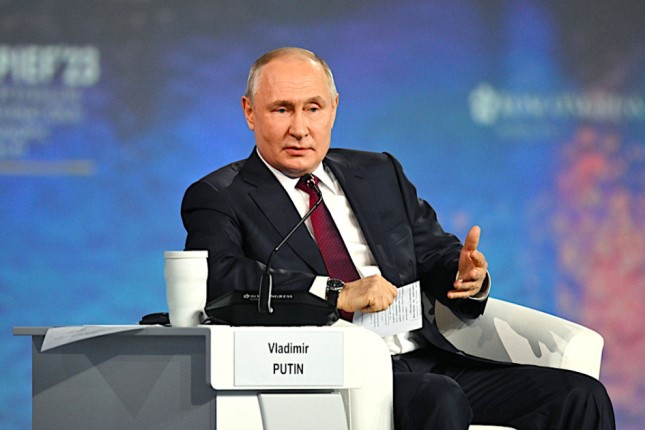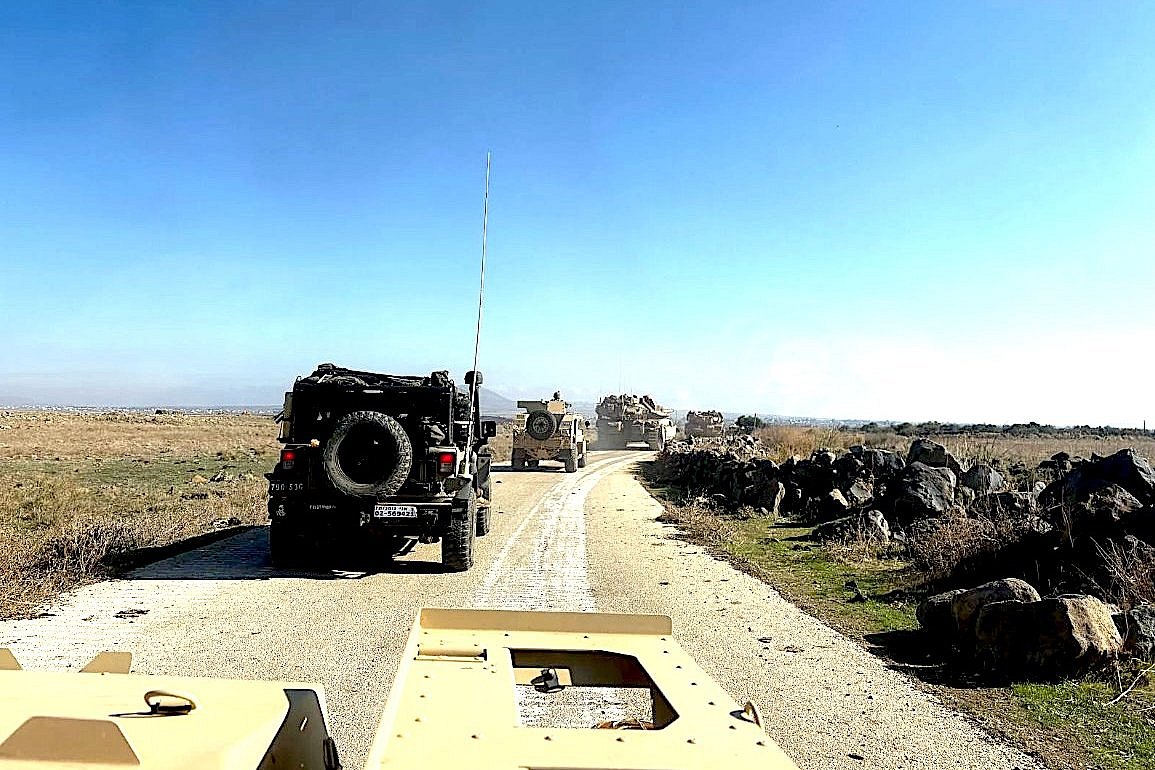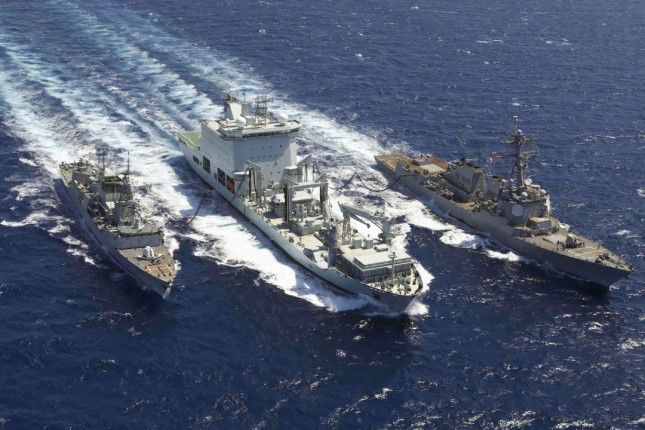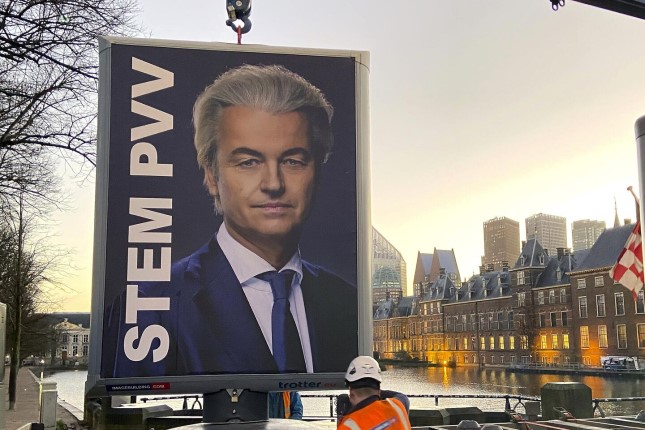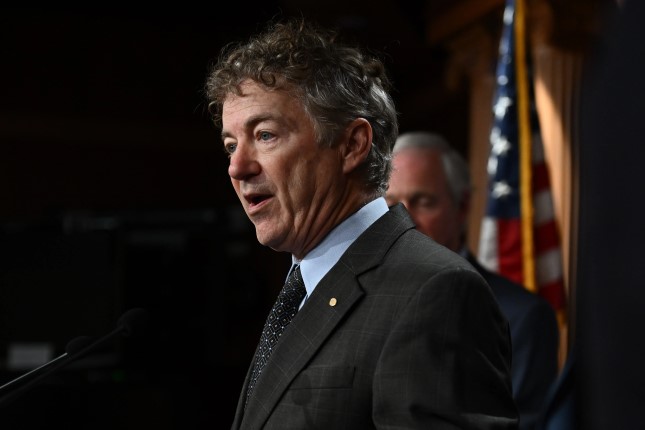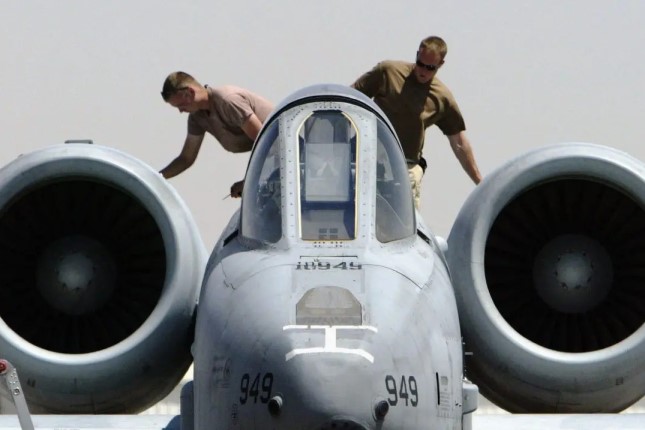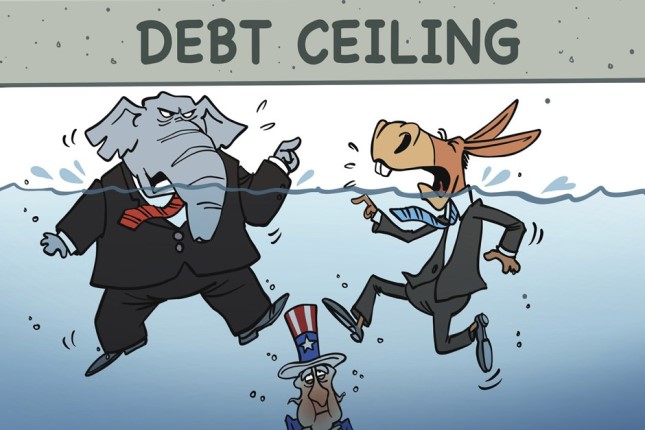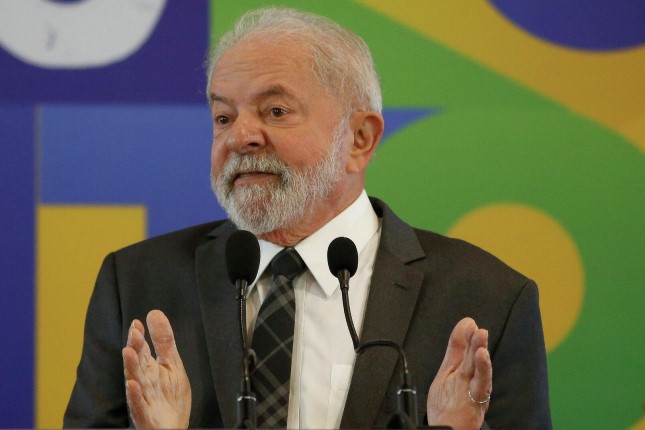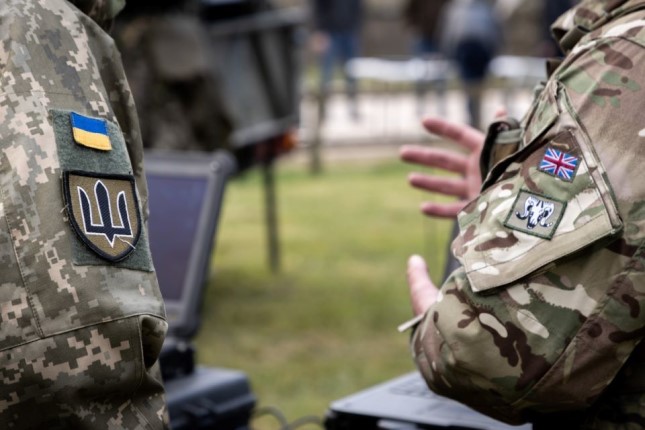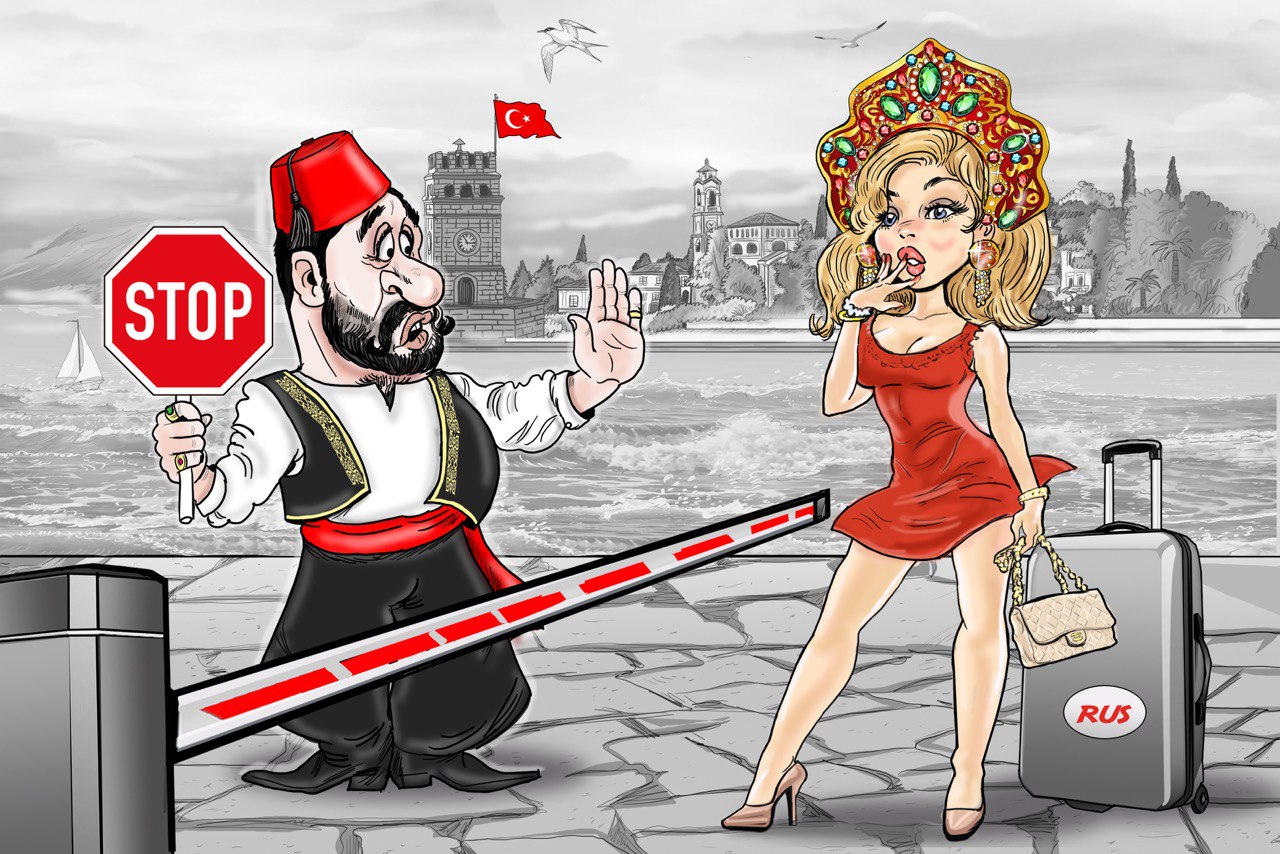Back in March, I had the opportunity to participate in an on-line forum where a well-known Russian expert provided a briefing on the “ground truth” as he saw it from Moscow.
Following the briefing, the floor was opened for questions. I had noted that the briefer, the moderator, and indeed the audience made repetitive use of the term “invasion” to describe what Russia has called a “Special Military Operation.”
I brought up the limited objectives of the Russian military effort at the time of its initiation, namely the goal of compelling Ukraine to agree to a negotiated settlement and asked if the term “Special Military Operation” was not a more accurate description of reality.
The expert understood my question and agreed that the term “Special Military Operation” carried with it a specific connotation which distinguished it from a classic military invasion. However, in the group chat, where participants were able to comment on the proceedings, one individual offered the following observation: “‘Special Military Operation?’ What’s that? I don’t speak Putin.”
This forum was intended as a way to better inform the participants about one of the most pressing issues of the day — the conflict between Russia and Ukraine — and to better prepare them for assessing the consequences of this conflict globally.
Given the failure of the collective West to impose its will on Russia through what is widely considered a proxy conflict, one would think that some form of retrospective analysis would be in order. However, to engage in such an activity constructively, an agreed-upon lexicon would be needed to communicate effectively.
Since Russia is prevailing in the conflict, one would also think that a modicum of interest should be given to how Russia defines the conflict. In short, anyone who is interested in learning the lessons of the collective West’s failure in Ukraine should learn “to speak Putin.”
Worn-Out Cold War Thinking
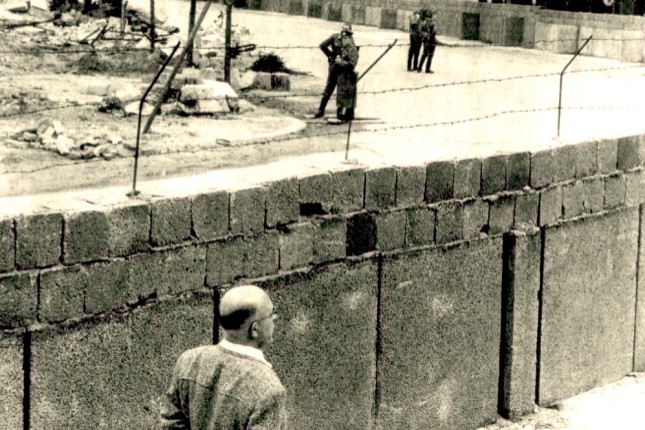
Berlin Wall in 1961. Photo: Wikimedia Commons / Public domain.
The problem is, those in the West who should be preparing a proper lexicon from which the Russian-Ukraine conflict could be more accurately assessed are instead operating from an outdated lexicon rooted in the language and mindset of a time that no longer exists, born of a Cold War mentality that prevents any deep-seated and relevant analysis of the true situation between Russia and the West.
Both the United States and NATO have described the Russia-Ukraine conflict as possessing existential consequences for Europe and the world, with the secretary general of NATO, Jens Stoltenberg, going so far as to declare in October 2022 that “Russia’s victory in the war against Ukraine will be a defeat of NATO,” adding ominously, “This cannot be allowed.”
Bad news, Mr. Stoltenberg — Russia has won. While the “Special Military Operation” has yet to be concluded, Russia has seized the strategic initiative across the board when it comes to conflict with Ukraine, forcing the Ukrainian military to terminate a counteroffensive, which the government of Ukraine and its NATO allies had invested tens of billions of dollars in military resources, and tens of thousands of Ukrainian lives in hopes of achieving a decisive victory over the Russian military on the battlefield.
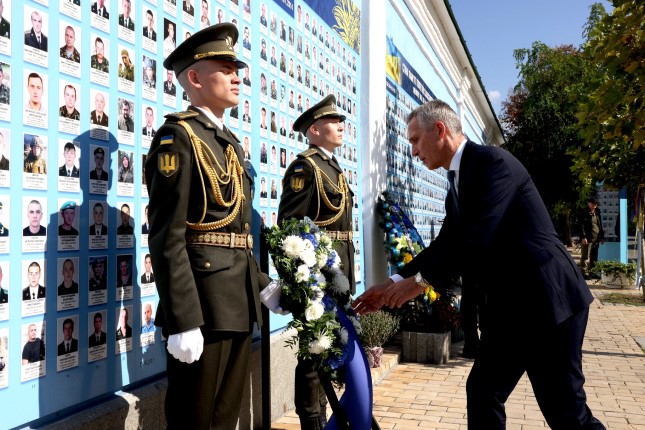
Stoltenberg laying a wreath at the Wall of Remembrance of the Fallen for Ukraine on Sept. 28. Photo: NATO / Flickr / CC BY-NC-ND 2.0.
Today, Ukraine finds its military decimated by the fighting and unable to sustain itself as a cohesive combat force on the field of battle. The U.S. and NATO likewise find themselves unable and/or unwilling to continue supplying Ukraine with the money and material needed to continue to maintain a viable military presence on the battlefield.
Russia is in the process of transitioning away from a posture of flexible defense, and instead initiating offensive operations along the length of the line of contact designed to exploit opportunities presented by an increasingly depleted, and defeated, Ukrainian army.
U.S. President Joe Biden has likewise argued that a Russian victory was unacceptable.
“We can’t let Putin win,” Biden said earlier this month to put pressure on a U.S. Congress that has allowed the Ukrainian conflict to become wrapped up in domestic American politics, with key Republicans in both the Senate and House refusing to support a funding bill that lumps some $60 billion in Ukraine assistance together with money for Israel and immigration reform.
“Any disruption in our ability to supply Ukraine clearly strengthens Putin’s position,” Biden concluded.
Biden’s articulation of the quandary faced by his administration underscores the extent to which the U.S. and its European allies have personalized the Russian-Ukraine conflict. In their eyes, this is Russian President Vladimir Putin’s war.
Indeed, Russia itself has been reduced to being a mere appendage of the Russian president. In this, Biden is not alone. An entire class of erstwhile Russian “experts” — including the likes of former U.S. Ambassador to Russia Michael McFaul; the Pulitzer Prize-winning historian Anne Applebaum; and a host of so-called national security experts, including former Deputy National Intelligence Officer for Russia Andrea Kendall-Taylor and the former Russia Director for the National Security Council Fiona Hill — have all made the ongoing conflict between Ukraine and Russia all about Putin.
In a recent interview with Politico, Hill, the co-author of Mr. Putin: Operative in the Kremlin, published in 2015, mirrored the statements by Stoltenberg and Biden that defined the Russia-Ukraine conflict as an existential crisis.
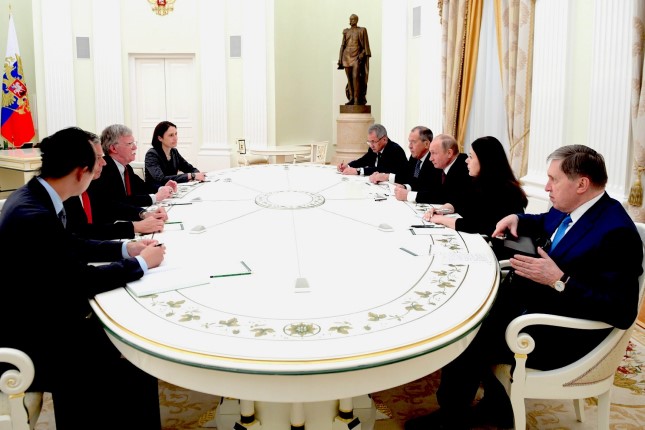
March 2018: Fiona Hill, at far end of left side of table, at a meeting between U.S. National Security Advisor John Bolton — beside Hill — and Putin in Moscow. Photo: Kremlin.ru / CC BY 4.0 / Wikimedia Commons.
Kendall-Taylor, who in 2022 co-authored an article in Foreign Affairs titled “The Beginning of the End for Putin?” likewise views the conflict as an extension of Putin’s needs as an individual, more than Russia’s needs as a nation.
“Putin,” Kendall-Taylor told NPR in January 2022, before the start of the Special Military Operation, “really is looking to keep Ukraine in Russia’s orbit. After 20 years of him being in power, he’s thinking about his legacy, and he wants to be the leader who returned Russia to greatness. And to do that, he has to restore Russian influence in Ukraine. And for him, I think it’s really personal. Putin, over his 20 years — 22 years now in power, has tried and failed repeatedly to bring Ukraine back into the fold. And I think he senses that now is this — his time to take care of this unfinished business.”
Such an outcome, of course, is unacceptable, according to Kendall-Taylor. “I don’t think it’s overstating it to highlight how important the U.S. assistance is,” she recently told The New York Times. “If the assistance doesn’t continue, then this war takes on a radically different nature moving forward.”
Applebaum in November penned an article in The Atlantic titled “The Russian Empire Must Die,” wherein she argued that “a better future requires Putin’s defeat — and the end to imperial aspirations.” She recently gave her opinion of Putin’s legacy in the aftermath of the Ukraine conflict.
“I don’t think there’s any question that Putin will be remembered as the man who really set out to destroy his own country,” Applebaum told Radio Free Europe/Radio Liberty in an interview last August. Putin, Applebaum declared, “is somebody who has worsened the living standards, and freedom, and culture of Russia itself. He doesn’t seem to care about the well-being or prosperity of ordinary Russians. They’re just cannon fodder to him. He’s not interested in, you know, Russian achievements in infrastructure or art or in literature and in anything else. He has impoverished Russians. And he’s also brought back a form of dictatorship that I think most Russians had thought they’d left behind.”
What the Russian president is doing, Applebaum said, “is really destroying modern Russia. And I think that’s what he’ll be remembered for overall.”
"Russia Is the Problem Because it Empowers Putin"
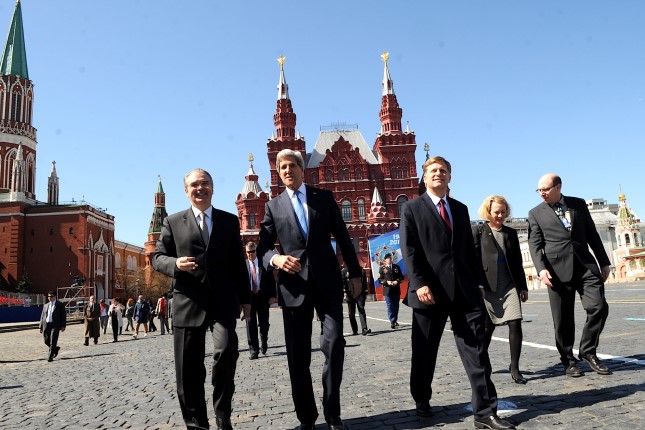
Touring Red Square in Moscow in May 2013: McFaul, when he was U.S. ambassador to Russia, is third from right. From left: Russian Chief of Protocol Yuriy Filatov and U.S. Secretary of State John Kerry Photo: State Department / Public domain.
McFaul, the former U.S. ambassador to Russia, wrote a memoir, From Cold War to Hot Peace: An American Ambassador to Putin’s Russia. In a recent interview with Radio Free Europe/Radio Liberty, McFaul stated that, “I changed my views as a result of this horrific, barbaric war in Ukraine, because Putin made the decision to invade Ukraine.” Russia, McFaul now claims, is the problem because Russia has empowered Putin.
McFaul backs up his assessment with a bit of revisionist history.
Calling Putin “a completely accidental leader of Russia,” McFaul labeled Putin “a creature of the existing regime” appointed by Boris Yeltsin, the first president of Russia, and lacking in any meaningful political constituency.
Putin, McFaul claims, “wants to create this myth that ‘there was the chaos of the ‘90s, and I came in as the hero.’ That’s complete and utter nonsense,” McFaul asserts. “That’s not the history the way it was in real time.”
Given Putin’s lack of political pedigree, McFaul says, “we don’t necessarily know if Russians support him. How do you know when there’s not real free and fair elections, when there’s no real media? You can’t know if he’s popular or not in those conditions.”
McFaul says that “I changed my views” about the culpability of the Russian people for Putin “as a result of this horrific, barbaric war in Ukraine, because Putin made the decision to invade Ukraine. There was no vote; there’s no referendum. We don’t know what Russians actually thought about that decision. There is public-opinion polling before it to suggest that they didn’t want that fight, including by independent organizations, even Western organizations. But once he went in, there was support — as there usually is when countries go to war — and now there are Russians that are raping Ukrainian women and children; there are Russians that are committing massive atrocities inside Ukraine. So Putin can’t do those things without the support of Russians. And therefore, this excuse that Russians are not guilty and they shouldn’t be treated badly, and they shouldn’t be sanctioned because of autocracy, I disagree with that.”
Putin’s war, McFaul concludes, is now Russia’s war.
McFaul’s unsubstantiated allegations of Russian atrocities provide a clear picture of the fact-free foundation used by the former ambassador to shape his narrative of Putin’s Russia.
McFaul’s assertion of rape is particularly egregious, considering that, at the time of his interview — July 2023 — these allegations had been quashed by Ukraine itself following the revelations that Lyudmila Denisova, the Ukrainian Parliament’s commissioner for human rights, had issued official statements using unverified information.
In a letter to the Parliament, Ukrainian journalists said Denisova’s reports were harmful to Ukraine, noting that the information put out by Denisova’s office was regarded as factual by the media, and was “then used in articles and in speeches by public figures.”
Denisova was fired in May 2022 — more than a year before McFaul echoed her discredited allegations in a living manifestation of the caution set forth by the Ukrainian journalists.
McFaul premised much of his altered view regarding the co-responsibility of the Russian people for the conflict with Ukraine on his understanding of the events of the 1990’s, and how these events shaped the rise to political prominence of Vladimir Putin.
Curiously, McFaul asserts that any notion of the decade of the 1990s as being one of “chaos” for Russia is a myth. What makes this assertion particularly curious is that McFaul himself was personally involved with the Russia of the 1990s, and should know better.
McFaul arrived in Moscow in 1990 as a visiting scholar at Moscow State University. He later took a position as a consultant with the National Democratic Institute (NDI), self-described as “a nonprofit, nonpartisan, nongovernmental organization that has supported democratic institutions and practices in every region of the world,” blurring the line between academic and activist.
The NDI was founded in 1983 to promote “public diplomacy” operations in furtherance of U.S. national security interests. As the NDI’s representative in Moscow, McFaul actively supported “Democratic Russia,” a coalition of Russian politicians led by Yeltsin, whom McFaul later dubbed the “catalyst for the Cold War’s end.”
In his 2001 book, Russia’s Unfinished Revolution: Political Change from Gorbachev to Putin, McFaul openly espoused the concept of “democracy” as it was manifested in the form of Yeltsin, even though McFaul knew only too well that Yeltsin was little more than the hand-picked puppet of the United States.
McFaul took umbrage at Putin’s rise to prominence and power, proffering instead an alternative reality which had Yeltsin, who resigned from the Russian presidency on New Years Eve 1999, appointing Boris Nemtsov (whom McFaul describes as the “heir apparent”) instead of Putin as his replacement.
McFaul never forgave Russia the sin of Putin’s appointment — in Russia’s Unfinished Revolution, he declared that the former KGB officer had “inflicted considerable damage to democratic institutions” in Russia, a remarkable example of personal prejudice, given that Putin took power in 2000, and McFaul’s book was published in 2001.
Moreover, McFaul engaged in a good deal of historical revisionism, given that there were no “democratic institutions” in Russia under Yeltsin — Russian tanks firing on the Russian Parliament in October 1993 on the orders of Yeltsin, combined with the open rigging of the 1996 election with the support of the United States, guaranteed that.
McFaul was more than familiar with this history — he helped shape the conditions that produced it — making his present-day amnesia suspect.
Main photo: Russian President Vladimir Putin in June, during the St Petersburg International Economic Forum © Ramil Sitdikov / RIA Novosti Host Photo Agency / Kremlin.
Source: Consortium News.
